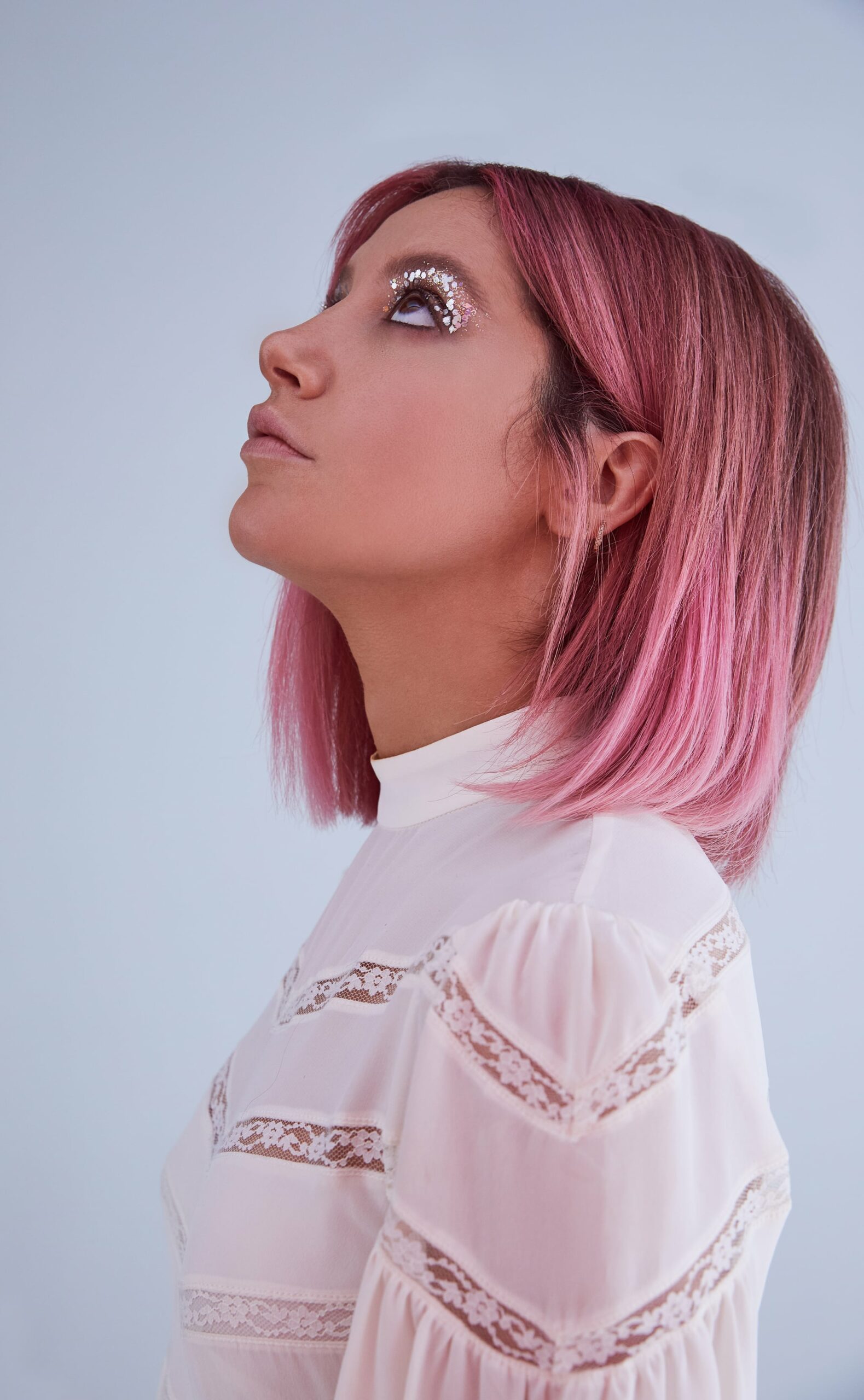Ashley Tisdale is an actress, recording artist, and the CEO of Illuminate Cosmetics. Here is her story as told to Christina Stiehl.
When I was younger, I was such a perfectionist. Before performances, I constantly worried that something would go wrong: Will I trip and fall? Will I forget the lyrics? Will my mistake be all over YouTube tomorrow? I put so much pressure on myself: my heart would race, I would get a vibrating feeling in my neck, and my face would go numb. At the time, I wasn’t aware I was having panic attacks. I also didn’t realize then that the drive to be perfect is a huge part of anxiety and depression.
Sometimes I would feel really confident and great, and then other times I would go to an event and feel like I didn’t belong. My negative self-talk would make me feel like I wasn’t good enough to be there. But here’s what we don’t discuss enough: how you talk to yourself should be like how you talk to your best friend. If your best friend came to you with an issue or an insecurity, you would try to lift them up and help them rationalize what they are going through. For some reason, when we talk to ourselves, we are our own worst critic.
If you ask a room full of people if anyone has experienced anxiety, most will feel comfortable raising their hands. But if you ask the same group if they have gone through depression, odds are, they would be much more reluctant to admit it. Unfortunately, there’s still a stigma around depression. Often times, anxiety and depression go hand in hand, and anxiety can be just as bad as depression – they can both be horrible and painful.
Once we stop giving power to the word depression, we can lift the judgment around it.
While I have only had depressive feelings at a low level and can’t speak for everyone — I have never taken medication for depression, for example — I want people to know it’s OK. You can get through a depressive episode, and you shouldn’t be ashamed. Don’t be scared to talk about it with friends and family; once we stop giving power to the word depression, we can lift the judgment around it.
That’s what I hope to accomplish with my new album Symptoms. It’s a journey from the first to the last track, and each song is symbolic of a symptom I experienced. As I worked through the creative process of making the album, I wanted to be able to celebrate my journey and not give those feelings — the dark feelings I used to be scared of — too much power.
These days, I’m proactive about taking care of my mental health. I meditate every morning to get centered and focused, and I’ve read several books that have helped me understand my thoughts and recognize my symptoms (Attacking Anxiety and Depression by Lucinda Bassett was one I really identified with).
I still have good days and bad days, but I think it’s important to realize a bad day is just one bad day. I wake up every morning as if I’ve pressed a reset button, knowing each day is a new opportunity — what bothered me yesterday won’t bother me today.
Everyone, even the people you look up to, is struggling with something. We tend to have a major fear of failure, but you know what? Some of the most successful people have gone through failure. Despite what social media might make you think, no one has a perfect life. I want people to know something I wish I would have known all those years ago: there’s beauty in imperfection. Perfect is boring. We’re all complicated, and we all have issues. I’m proud of everything I’m feeling now because it makes me who I am.
All of these so-called “flaws” that we have make us who we are.
When we were shooting the cover of my single “Voices in My Head,” I realized the photographer was shooting me on my “bad side” (everyone has a “good side” and a “bad side” for pictures, right?). At first, I was bummed about it, but I love how the photos turned out. I realized in that moment that I’m not showing a beautiful side of myself on this record — I’m showing a vulnerable side.
I hope you feel empowered to show your vulnerable side, too. All of these so-called “flaws” that we have make us who we are. And that’s the most beautiful thing of all.
Image Source: Andres Norwood

